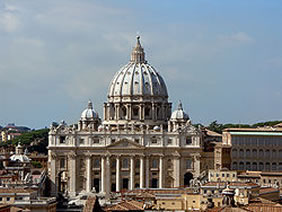The Catholic Secretariat of Nigeria (CSN) has expressed deep concerns regarding the potential implications of expanding Sharia law in Nigeria’s South-West region, cautioning that such a move could exacerbate existing tensions and potentially ignite religious conflict. The CSN emphasizes the delicate balance required to uphold religious freedom for all citizens within the nation’s diverse religious landscape. While acknowledging the constitutional provision allowing for Sharia in personal matters, the Secretariat stresses the importance of cautious implementation to prevent the marginalization of other religious groups. This concern is particularly pertinent in the South-West, where interfaith families are common, making any perceived favoritism towards one religion potentially disruptive to social harmony. The CSN advocates for legal reforms that prioritize inclusivity and respect for all faiths, recognizing the interconnectedness of Nigerian society and the constitutional guarantee of religious liberty.
The CSN links the desire for Sharia implementation among some groups to dissatisfaction with the existing legal system. They acknowledge the underlying grievances that fuel this desire but emphasize that solutions must be inclusive and address the concerns of all citizens, not just a specific segment of the population. The Secretariat argues that imposing one religious legal system on a diverse populace could undermine national unity and erode the constitutional rights of those who do not adhere to that particular faith. They call for a more nuanced approach to legal reform that addresses the root causes of dissatisfaction while maintaining a framework of religious freedom and mutual respect.
Beyond the concerns about Sharia expansion, the CSN also addresses the alarming rise of neo-paganism among Nigerian youth, attributing this trend to a complex interplay of socio-economic hardships, the erosion of family values, and the pervasive influence of social media. The Church posits that economic struggles create a fertile ground for vulnerability, leading young people to seek solace and solutions in alternative spiritual practices. They highlight the decline in traditional family structures and the weakening of moral guidance within the home as contributing factors, leaving young people susceptible to the often-unregulated and sometimes harmful influences found online and within their communities.
The CSN further elaborates on the factors driving young people towards neo-paganism, pointing to the allure of quick fixes and promises of material wealth often associated with these practices. They argue that the lack of strong moral foundations makes young people particularly vulnerable to such enticements. The Church is actively working to counteract these influences through training programs designed to reinforce traditional values and guide young minds towards what they consider the true faith. These initiatives aim to instill a deeper understanding of spiritual matters, emphasizing principles of ethical conduct, hard work, and a rejection of materialism as the path to fulfillment.
The pursuit of wealth by any means necessary, often linked to corruption, is identified by the CSN as a significant societal problem contributing to the decline of ethical principles. The Secretariat argues that this “get-rich-quick” mentality erodes the moral fabric of society, making it difficult for individuals to discern right from wrong. They highlight the critical role of the family unit in shaping moral character and emphasize the need to instill values of honesty, hard work, and the dignity of labor from an early age. They advocate for a multi-pronged approach involving families, schools, and religious institutions working together to promote these values and counter the corrosive influence of materialism.
The CSN’s concerns paint a picture of a society grappling with complex challenges, including religious tensions, the erosion of traditional values, and the allure of materialism. They advocate for a holistic approach that addresses the underlying socio-economic factors contributing to these issues while upholding the principles of religious freedom, inclusivity, and ethical conduct. The Church sees itself as playing a vital role in shaping consciences and guiding individuals towards a more morally grounded path, emphasizing the importance of strong families, sound education, and a commitment to values that promote the common good. Their call to action underscores the urgency of addressing these challenges to build a more just and harmonious society.














